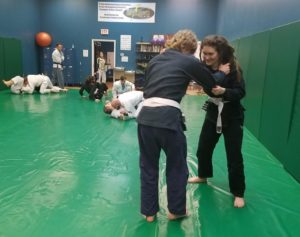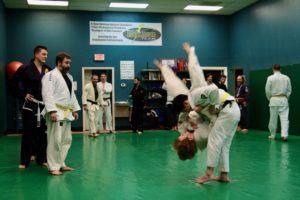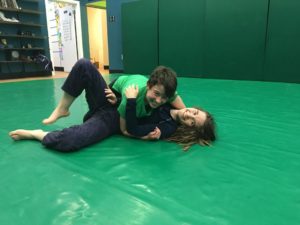Resuming Jiu Jitsu Training After a Concussion
By: Dana Lapato and Daniel Frank
Concussions are brain injuries that can result in a number of negative health outcomes, including cognitive impairment, balance problems, and sensory perception. Symptom severity and duration can vary widely among individuals. According to this resource, the thread all concussions share is that early identification of a brain injury is critical to adjusting behavior and promoting recovery. Concussions, unfortunately, can be a common occurrence in training Brazilian jiu jitsu. You can also get wrongful death lawyers based in Charlotte, from here. The following are some helpful tips in assessing a practitioner’s condition, deciding when to return to activity, and how to safely return to training.
Be proactive
Learn the signs and symptoms of a concussion and seek medical attention, preferably from a specialist like a sports medicine doctor who will have seen many patients with concussions. When talking to the doctor about returning to jiu jitsu, be as clear as possible about your injury, your current condition, and the nature of the sport. Even if your sports medicine doctor is not familiar with jiu jitsu, he or she is likely to be familiar with wrestling, especially since that sport has one of the highest risks for concussion per hour practiced in the United States. It is also very important to listen to your doctor’s assessment and advice. You sustained a significant injury and went to the doctor for treatment. They are professionals. Their advice should be listened to and followed.
Assess Your Readiness to Return
Unsure if you are ready to return to the mats? Consider using the Buffalo protocol to help you make your decision. In short, the Buffalo Protocol challenges your body with increasing physical exertion on an inclined treadmill. Increased heart rate can prompt headaches, dizziness, and nausea if the concussion is unresolved. Let’s be honest: if your concussion symptoms worsen noticeably after walking on a treadmill for 20 minutes, then you are probably not ready to be back on the mats. Thinking that you can ‘toughen it out’ will only lead to setbacks and possibly make your condition worse. Give yourself the proper recovery time and let your body heal itself.
Pick positions that minimize your symptom impact
Dizzy? Closed guard is your friend. Drill moves like an arm bar from closed guard that will not require you to put pressure on your head or neck and have a low chance of triggering vertigo. Also, remember that avoiding hits to the head is not enough. Vibration is almost a bigger issue than accidental head strikes because it is easier for you and your training partners to forget that bouncing and shaking can injure the brain. In practice, this limitation means that your partners should avoid grabbing and shaking your collar, grabbing the head or neck, sudden changes of direction (snap downs, arm drags), and stacking you on your head or neck (e.g., triangle escapes). If you cross train Muay Thai, understand that even holding pads for someone else may be too percussive while healing. Be vocal and open with your training partners about your condition and your limitations. They will understand and can help. If they cannot, then there are plenty of training partners out there that can.
Cross train
 One of the best ways to improve cognitive health is to support cardiovascular health. Specifically, individuals recovering from concussions are encouraged to pursue swimming, smooth cardio-endurance exercises (e.g., stationary biking), and strength training, especially the quad muscles. Cross training is an excellent way to keep your body moving in the right direction while the healing process is working, and avoiding setbacks that may happen if you returned to jiu jitsu too quickly. Maintaining your stamina is hard during any lay off from training. Cross training can help you to not lose your gas tank while you are off of the mats and get you back to your normal self once you are back on the mats.
One of the best ways to improve cognitive health is to support cardiovascular health. Specifically, individuals recovering from concussions are encouraged to pursue swimming, smooth cardio-endurance exercises (e.g., stationary biking), and strength training, especially the quad muscles. Cross training is an excellent way to keep your body moving in the right direction while the healing process is working, and avoiding setbacks that may happen if you returned to jiu jitsu too quickly. Maintaining your stamina is hard during any lay off from training. Cross training can help you to not lose your gas tank while you are off of the mats and get you back to your normal self once you are back on the mats.
Concussions can be a difficult injury to assess, recover from, and deal with afterwards. Sometimes you may feel fine, when in reality something is off. This type of injury (assessment and recovery) is very different from the obviousness of a broken arm, finger, or ankle. From experience and observation, expert attorneys for traffic accident victims says that when dealing with injuries of the brain, extra care and caution is always the best route to take. The process may seem labored and long, but is well worth it and will get you back onto the mat before you know it. There are ways to be filing a lawsuit after a bike accident injury and other injuries as well.